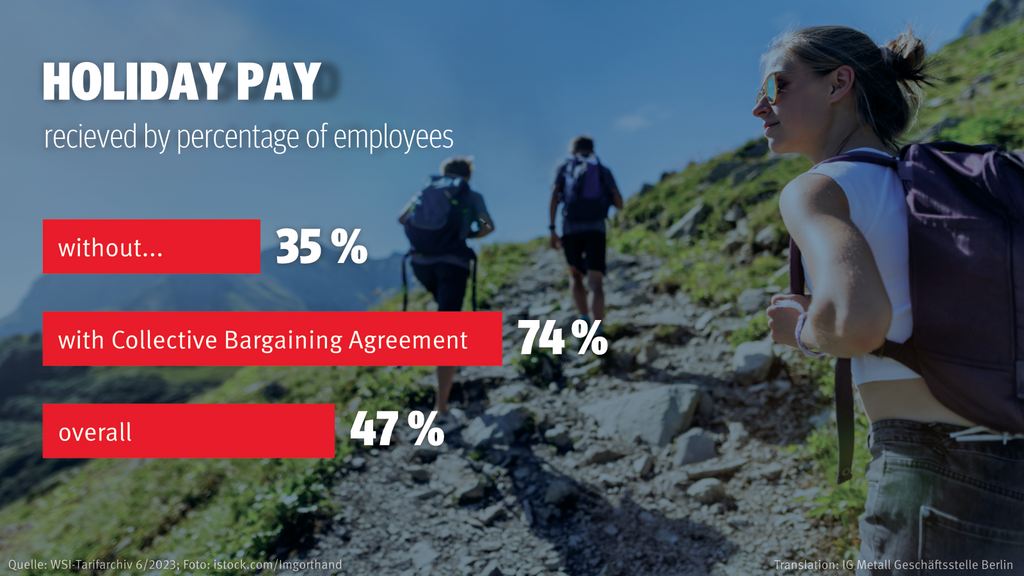Holiday Pay 2023
With Collective Bargaining Agreements, workers get more vacation days and more in their travel funds
22.06.2023 | Vacation finally. Employees in companies covered by collective agreements have a clear advantage here. With a collective agreement, they get not only more days of vacation, but also an extra bonus for the travel budget.
Not everyone in this country enjoys holiday pay. Just under half (47 per cent) of all employees are lucky - as the collective bargaining archive of the Economic and Social Research Institute (WSI) of the Hans Böckler Foundation has determined in a new evaluation.
If and how much holiday pay is paid depends on the region, the industry, the size of the company and the work experience. In Western Germany, holiday pay is still higher in many sectors than in the East. The larger the company, and the longer the employees’ career, the more likely it is that something will end up in the holiday fund.
Better Chances with Collective Agreements
There is no doubt that workers benefit from a holiday plus if their company is bound by collective agreements. According to the WSI collective bargaining archive, this applies to 74 per cent of employees. In contrast, only 35 per cent can look forward to holiday pay if their company is not bound by collective agreements. The amount of the collectively agreed extras varies greatly depending on the sector. The holiday pay range this year is between 180 and 2686 euros in the middle-income group.
The highest payments are received by workers with IG Metall collective agreements in the wood and plastics processing industry, in the metal and electrical industry and in the automotive industry. Generally, the holiday bonus is 50 per cent of the average income in the sectors covered by IG Metall collective agreements.
Six Weeks of Regeneration
Not to forget: Metalworkers are entitled to 30 days paid vacation a year. This is not universally so. Only 24 days are legally required - and only for employees who work six days a week. In case of a five-day week, the law requires only to grant 20 days.
Six weeks - that is how long metalworkers also went on strike for more holidays in the steel industry in 1978 and 1979. The result was a step-by-step plan leading to 30 paid vacation days, which has been enshrined in the IG Metall collective agreements since 1981.


